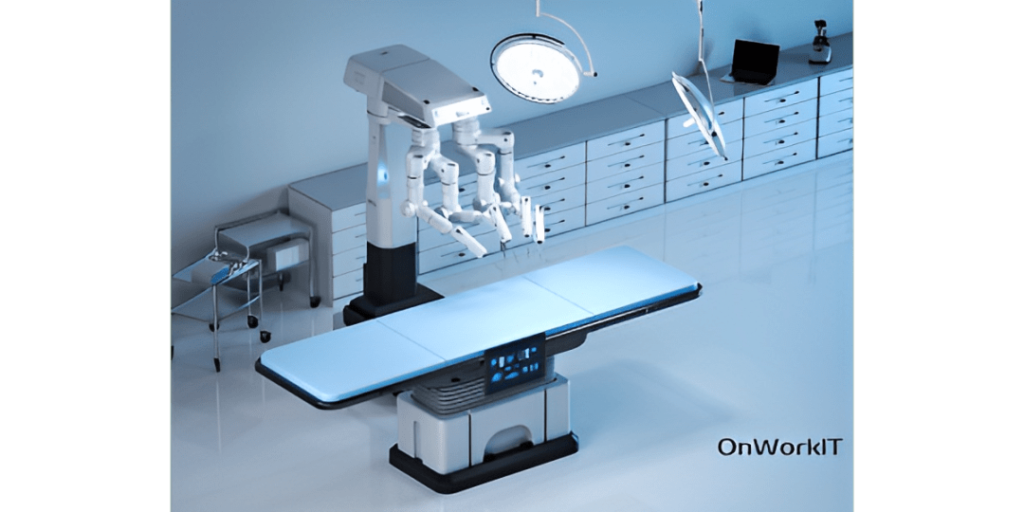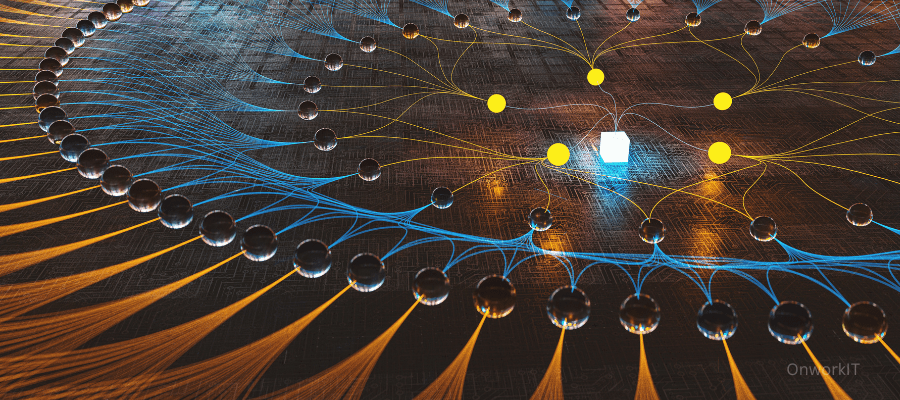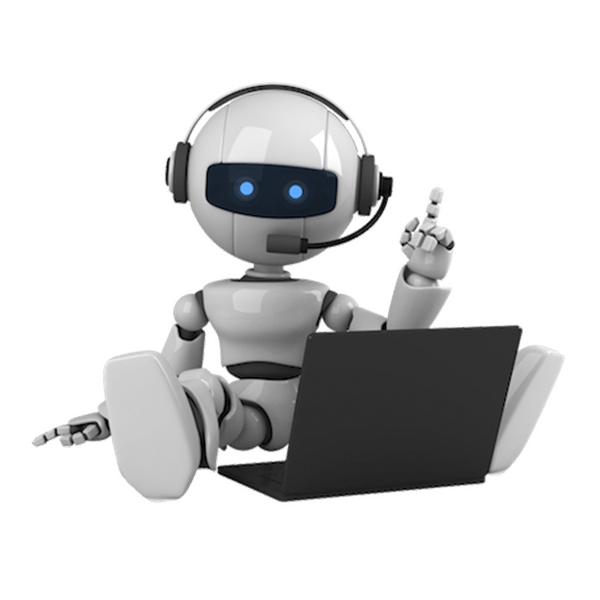The Growing Influence of AI in Various Industries
By boosting human abilities and automating labor-intensive jobs, artificial intelligence (AI) is fast changing many diverse sectors. Apart from boosting output, this technology stimulates innovation, which creates new job chances needing intellect, imagination, and strategic planning. For instance, AI-powered diagnostic technologies allow clinicians more quickly and exactly identify patients in the healthcare business. In addition to creating employment for data scientists, artificial intelligence experts, and support personnel, this technology helps them devote more time to challenging choices and patient care.
AI and Finance Industry
Artificial intelligence (AI) technologies are changing banking sector, fraud identification, and business operations. These technologies speed up processes and minimize the need for human involvement, consequently raising the demand for employment in artificial intelligence (AI) research, data science, and cybersecurity. More personnel who can use AI-generated insights to improve strategy formulation and decision-making are looked for in financial companies.
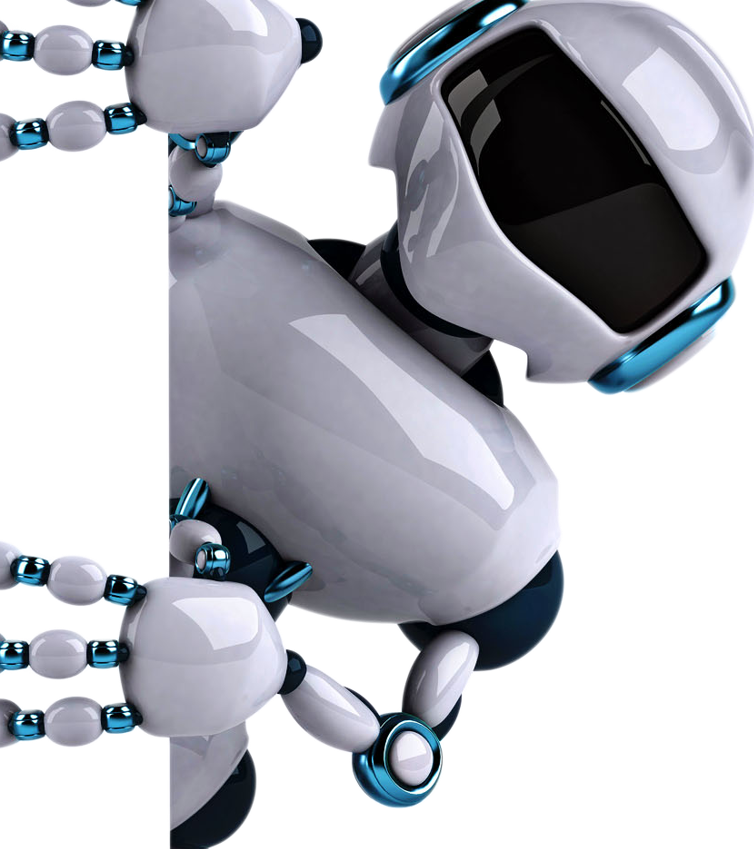
Another area of the economy where artificial intelligence is definitely changing is retail. With robots and virtual assistants, artificial intelligence (AI) technologies boost customer service; they also expedite supply chain procedures and allow focused buying. Companies have to hire data scientists, customer experience experts, and AI teachers to handle and grow these outcomes. Moreover, as more retail organizations adopt artificial intelligence, there is increased demand for digital transformation consultants—those who can assist companies overcome this technology upheaval.
In production, artificial intelligence finds value in predictive maintenance, quality control, and process optimization. Artificial intelligence systems could be able to predict machine flaws, hence minimizing downtime and improving productivity. For IoT (Internet of Things) engineers as well as maintenance and process optimization pros, this move to smart production brings promise. Moreover, the integration of artificial intelligence into business is spawning new careers based on human-machine interaction, hence highlighting the requirement of having a workforce with both emotional and technical knowledge.
Generally speaking, the introduction of artificial intelligence into many companies produces new employment possibilities as well as reinterpretation of currently existing ones. by automating difficult tasks and achieving human potential. Not only is artificial intelligence affecting how organizations work, but it is also giving new job chances needing both technical understanding and creative human skill.
AI-Based Job Opportunities in 2024

Artificial intelligence (AI) is quickly growing and affecting not just corporations but also creating a wave of fresh job chances. An growing amount of job reliant on artificial intelligence technologies are being produced as 2024 gets near. In this context, workers in AI ethics are important to ensure the design and operation of AI systems. Usually possessing degrees in data science, philosophy, or law, these workers have a solid understanding of technology and moral conundrums.
Since they are in charge of decoding and studying difficult numbers to aid firms in making choices, data scientists are still highly looked for. They require substantial training in computing, machine learning, and statistics. Likewise, the creation and usage of machine learning models rests largely on machine learning engineers. Apart from computer languages like Python and R, working in these areas needs understanding of algorithms and data structures.
AI trainers—who teach artificial intelligence systems how to do particular tasks—are another growing player. This ability frequently includes a mix of technical knowledge and domain experience to ensure that AI systems can learn from available data rapidly and efficiently. As they shrink the gap between expert teams and corporate goals, artificial intelligence product managers are becoming growingly crucial. These people monitor the production and launch of artificial intelligence products; they also need to be well-informed about AI’s capabilities and limitations and have great project management skills.
Incorporate AI Technologies
Thanks to artificial intelligence, established jobs are evolving and new chances for growth are appearing. While marketing professionals are studying customer behavior, financial experts are employing artificial intelligence to predict market changes.
AI is redefining job titles and creating hybrid careers needing a blend of conventional ability and artificial intelligence proficiency. This is so because artificial intelligence finds relevance in many different areas.
Considering everything, by 2024 there will be a big variety of AI-based work chances available. The confluence of artificial intelligence and other industries not only stimulates innovation but also generates job chances for people with a range of hobbies and skill set.
Preparing the Workforce for AI-Driven Careers
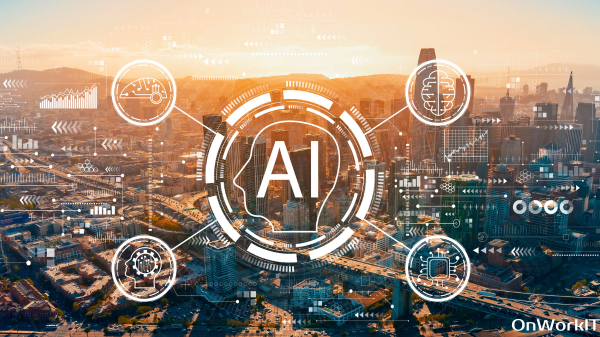
As artificial intelligence (AI) is revolutionizing many different areas, the workforce has to change and pick the necessary skills. The rise of AI-related job possibilities calls for a considerable focus on professional and educational approaches that might equip people for these fields. Retraining and upskilling are therefore highly vital measures for keeping workers’ competitiveness and usefulness in this context.
Leading edge of this shift is educational institutions. Gradually, colleges and universities are giving classes, degrees, and programs focused on artificial intelligence and machine learning. By merging basic information with real experience, these learning routes build a stable base of AI technology. Among the important projects are online classes provided by such like Udacity, edX, and Coursera, which provide open learning choices suited to unique situations.
Furthering AI education and teaching has been greatly helped by government programs. Many countries are starting projects to improve the digital literacy and technological awareness of their people. Common means to help this cause are working with IT firms, financial aid and grants for artificial intelligence classes, and so on. These ideas aim to produce a nice atmosphere where people from various backgrounds may receive artificial intelligence training and understanding.
Furthermore greatly altering labor readiness is the corporate sector. Businesses are funding internal training efforts to assure employees with the information needed to flourish in the AI age. By use of shared beneficial ideas and experience, IT businesses and academic schools collaborate to improve training programs.
In summary, training people for AI-driven work demands for a diversified approach integrating efforts from the business sector, government laws, and educational institutions. Those that give both professional and social skills high attention would be more prepared to prosper in a changing work environment brought about by artificial intelligence breakthroughs.
solving problems with artificial intelligence. In an AI-driven economy, experts who can synthesis ideas from various disciplines—including ethics, psychology, and economics—will be highly important.
Conclusion
In summary, the labor force has to be ready for professions driven by artificial intelligence by means of a multimodal approach mixing educational institutions, governmental laws, and business sector activities. AI breakthroughs are changing the work environment, so people could prepare themselves for success by giving soft and technical skills top attention.
handling the complexity of uses for artificial intelligence. Experts that can integrate their AI knowledge with notions from other areas, including psychology, economics, and ethics, will be very useful in an AI-driven economy.
FAQs
How is AI Related to IT?
Information technology (IT) and artificial intelligence (AI) have lot in common. AI helps in decision-making, data processing, and automation of routine processes. Developing new IT systems that boost efficiency and encourage creativity rely on artificial intelligence (AI) technologies like natural language processing and machine learning.
How Will AI Affect the IT Industry?
By improving safety, automating labor-intensive jobs, and simplifying predictive maintenance—all of which AI may change the IT sector—it has the ability to By focusing on more critical jobs, increasing service quality, and developing new possibilities for speed and innovation, IT pros will be able to assist to increase the overall organization.
What is the Difference Between AI and IT?
Whereas IT describes the use of computers, storage, networking, and other physical structures to process and keep data, artificial intelligence builds machines with human cognition in mind. Mostly focused on the building of intelligent systems, artificial intelligence is a field of information technology.
What is AI Used for in IT Operations?
In IT, artificial intelligence is utilized for predictive analytics, network optimization, danger monitoring, and automated help. By studying huge amounts of data to discover trends, project issues, and suggest solutions, AI-powered products greatly boost IT infrastructure management.
What is the Role of AI in the IT Industry?
AI stimulates creativity, improves output, and helps intelligent information systems to be created. By improving standards in areas including customer service, data management, and cybersecurity, it supports the business.
Which is Easier, AI or IT?
The scenario will decide whether IT or artificial intelligence is easier. Artificial intelligence (AI) includes specific understanding in data science, machine learning, and algorithms, while conventional IT jobs may entail rather basic technical obligations. The demand of strong computers and ongoing learning makes artificial intelligence increasingly complicated.
Job AI will Take Over?
Artificial intelligence will replace people in normal office tasks, data entry helpers, and telemarketers—jobs needing repeat and data input. It does, however, also provide fresh chances in data science, artificial intelligence growth, and other technology-related areas.
Will AI Replace Programmers?
Programmers will most likely be in necessity even if artificial intelligence can help with writing and automate some programming jobs. Instead, artificial intelligence will augment human abilities so they may focus on the more difficult and creative areas of software development.
Is AI the Future of Technology?
Future technology surely will be changed by artificial intelligence. By raising output, giving fresh innovation possibilities, and tackling hard challenges, it has the power to completely revolutionize many different firms. For many years artificial intelligence will keep growing and shaping technology.
What is the Use of AI in IT Support?
Future technology surely will be changed by artificial intelligence. By raising output, giving fresh innovation possibilities, and tackling hard challenges, it has the power to completely revolutionize many different firms. For many years artificial intelligence will keep growing and shaping technology.
How Can AI Help in Technology?
In what technical areas does artificial intelligence find application?
AI stimulates technical creativity, boosts data analytics, automates jobs, and improves user experiences. It allows the making of intelligent systems capable of learning and adaptation, thus giving more efficient and effective answers.
What is the Salary of an AI Engineer?
An artificial intelligence engineer’s income changes on their industry, location, and degree of skill. The usual compensation for an artificial intelligence engineer in the United States is between $100,000 and $150,000; especially bright ones make substantially more.
Which Jobs are at Risk Due to AI?
AI threatens professions demanding continuous effort including data entry, telemarketing, first-line customer support. AI will automate these activities, hence causing work to change into something more creative and complicated.
Why is AI Booming Now?
Large datasets are now freely available, machine learning methods are developing, and computer performance is growing—all of which serve to explain the present AI growth. These components have hastened the acceptance of artificial intelligence in organizations by make it more widely applicable and possible for numerous uses.
What Will AI Be Like in 10 Years?
Artificial intelligence will have matured in ten years, grown increasingly common in daily life, and be able to perform rather demanding jobs. Many areas will profit from technology, predictive analytics, and sensible decision-making; these will also greatly affect society and the business.
